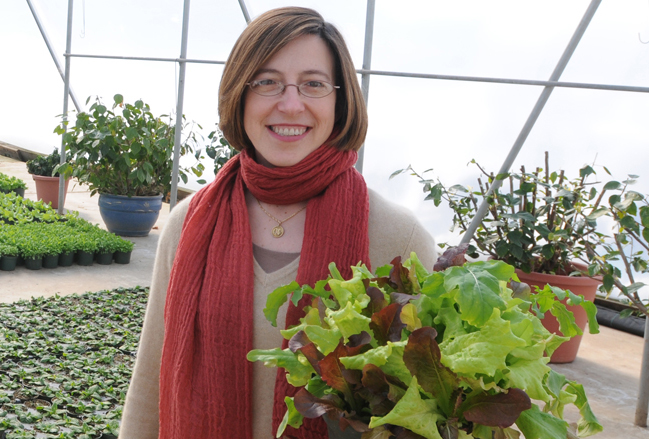Friday, Apr 15, 2011
As the quality of mass-consumption foods deteriorates, the opportunity to eat healthier, forge friendships and boost the economy might be right down the road.
by Laura Hyatt
Locavore. Foodshed. Organic. Free range. These terms are entering more and more people’s conversation, and for good reason. Our food supply, although larger, has become significantly worse, and the nutritional quality of our food supply is going downhill. Toxic microbes and additives are showing up in many products. Synthetic pesticide and herbicide residues on food are threatening our health and that of our planet’s ecosystems. Most significantly, transporting food across the globe generates climate-changing greenhouse gases whose effects impact every market and every human pursuit.
All is not lost, however. Responses to these challenges are also transforming our food system in exciting ways. Produce is being grown in vacant lots in Newark, Camden and Trenton, N.J. Food stamps are accepted at farmer’s markets. Kids are growing food in schoolyard gardens. College graduates are starting small and diverse organic farms, and community supported agriculture organizations (CSAs) are sprouting up everywhere.
Should you join the revolution? I would argue “yes.” Pulling over at that farm stand, joining your local CSA or making the Saturday morning trek to the farmer’s market not only helps our global ecosystem, it also benefits your health, your family, the local economy and builds your community in fantastic ways.
Your Health
Eating local means that you’re eating low on the processing chain. By converting raw plant parts to edible delicacies, you are avoiding added salts, fats and preservatives that can compromise your health. Reducing your meat intake can also have tremendous health benefits. Local foods don’t travel as far, so they are fresher and the climate costs of transporting your dinner to your plate are vastly diminished. Organic produce grown without synthetic pesticides and herbicides not only have fewer contaminants, but they also keep our water and soil clean and safe.
Your Family
Cooking is becoming a lost art, as is the family dinner. By buying local, cooking and eating together, you are establishing a firm foundation of health for your family and connectivity with your community that is increasingly important in our fast-paced world. Children gain a better understanding of where their food comes from, as well as a basic understanding of biology. Diets are improved, which subsequently improves learning, success and overall health. Eating by the season also gives you fresher produce and connects your family even more strongly to the earth and its natural processes. Preserving fresh produce by freezing or canning is another activity that feeds the family nutritionally as well as socially.
Your Local Economy
Eating local feeds small businesses. Small farmers are reclaiming a larger share of our nation’s economy. They buy supplies in the local economy, strive for self-sufficiency, and provide jobs for local residents. Buying your food from the farmer down the road also helps to keep money in your neighborhood. Purchasing a local apple pays a local grower, a local picker, a local packer and a local merchant. All of those players will spend their money nearby, growing your regional economy, generating jobs, tax revenue and community pride.
Your Neighborhood
At the nearby farmer’s market, you will find people chatting, greeting each other warmly and making new friends. You might be surprised to find that the movers and shakers in your town are forging a lot of important connections at the farmer’s market. Research shows that people engage in five times more conversations at farmer’s markets than in the grocery store. Joining this community connects you to neighbors and other families who are interested in health and the environment, and expands your social world.
What is Rider doing?
The summer of 2010 was the inaugural season for the Rider Community Garden on the Lawrenceville campus. Students, faculty and staff helped grow tomatoes, watermelon, broccoli, green beans, chilies, beets, flowers and herbs. A Friday afternoon produce giveaway helped feed the community and drew together an array of people who will work together this summer to expand and diversify the offerings. A grant from Ortho-McNeil-Janssen will also provide a Rider student with an internship as a summer garden manager.
Suggested reading
- What to Eat by Marion Nestle
- Food Rules by Michael Pollan
- The Family Dinner by Laurie David
- Animal, Vegetable, Miracle: A Year of Food Life by Barbara Kingsolver
Dr. Laura Hyatt, associate professor of Biology, was named the assistant dean for Science in Rider’s College of Liberal Arts, Education and Sciences, during the fall 2010 semester. She is the founding chair of the Energy and Sustainability Steering Committee, board president of Sustainable Lawrence and the director of Rider’s Sustainability Studies Program.

